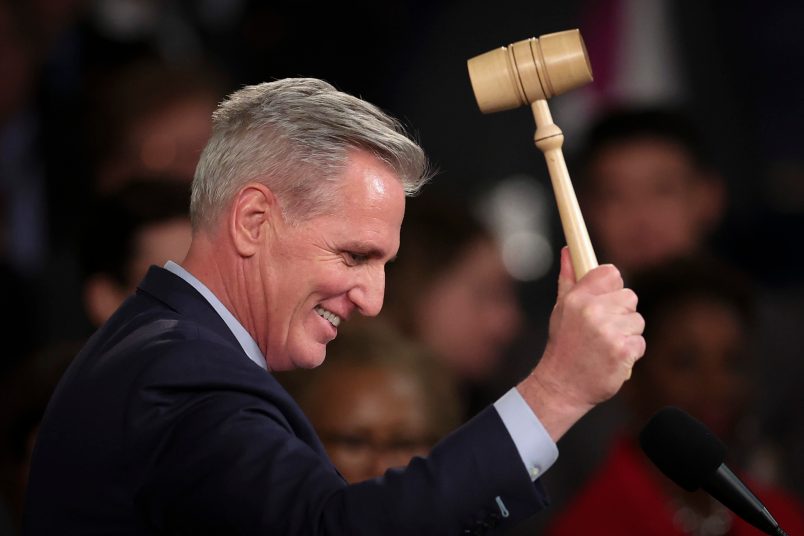Treasury Secretary Janet Yellen said on Friday the U.S. is projected to reach its roughly $31.4 trillion borrowing limit on Jan. 19. In a letter to Speaker Kevin McCarthy (R-CA) and other congressional leaders, Yellen said the Treasury Department will begin taking “extraordinary measures” starting next week to prevent the U.S. government from defaulting on its obligations.
The extraordinary measures can buy House Democrats and Republicans some time to find a bipartisan way to raise or suspend the debt limit. Republicans have for months, however, telegraphed that they hope to use the debt limit as a bargaining chip, essentially taking the full faith and credit of the U.S. hostage to achieve policy objectives.
In particular, House Republicans have been warning that they will seek cuts to Medicare and Social Security.
“We’ve got to change the way we’re spending money wastefully in this country. And we’re going to make sure that happens,” House Speaker Kevin McCarthy told reporters on Thursday.
It’s unclear how long the extraordinary measures will keep the government going but Yellen did stress that this is only a temporary solution. If the lawmakers can’t come to an agreement in time, the U.S. government would not be able to borrow to pay its existing bills.
A failure to find a compromise would have devastating consequences not only for the U.S. economy but also the world economy and financial stability. Just the prospect of a U.S. debt default due to Republican brinkmanship resulted in credit-rating agencies downgrading their rating for the U.S. federal government in 2011. In that case, Republicans extracted concessions and the U.S. did not default.
“The use of extraordinary measures enables the government to meet its obligations for only a limited amount of time,” Yellen said. “It is therefore critical that Congress act in a timely manner to increase or suspend the debt limit. Failure to meet the government’s obligations would cause irreparable harm to the U.S. economy, the livelihoods of all Americans, and global financial stability.”
Senate Majority Leader Chuck Schumer (D-NY) and House Minority Leader Hakeem Jeffries (D-NY) echoed Yellen’s sentiment in a joint statement on Friday.
“A default forced by extreme MAGA Republicans could plunge the country into a deep recession and lead to even higher costs for America’s working families on everything from mortgages and car loans to credit card interest rates,” they wrote. “Democrats want to move quickly to pass legislation addressing the debt limit so there is no chance of risking a catastrophic default.”
The United States has never defaulted on its debt in its history.
“We will not be doing any negotiation over the debt ceiling,” press secretary Karine Jean-Pierre told reporters on Friday afternoon.
“It is one of the basic items Congress has to deal with,” she added. “And it should be done without conditions.”



